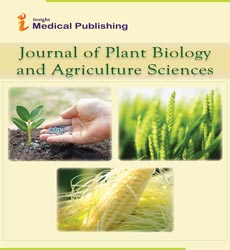Bioprospecting Endophytic Fungi Cladosporium genus as Source of Bioactive Metabolites
Abstract
The genus Cladosporium is of great interest to researchers due to its cosmopolitan distribution, large bio-diversity encompassing both phylogenetically and morphologically distinct, and enclosed against numerous morphologically similar but distinct genera. Cladosporium sp. is a common fungal endophyte of incredible ecological adaptability with wide applications in the field of agriculture as biocontrol agents, bio-stimulants aiming towards sustainable agriculture with a great diversity of secondary metabolites reported for wide implication in pharmaceutical science as antimicrobial, antineoplastic, and antiviral activities. Thus, better understanding and knowledge of the metabolites and compounds including various groups of human pathogenic species and heat-resistant fungi directs to biotechnological exploitation whether from terrestrial or marine environment towards crop improvement and also as a potential therapeutic agent. This work aimed at studying and analyzing the relationships between biodiversity and chemo-diversity in the context of future bioprospecting of Cladosporium genus from genomics to metabolomics with the emerging technologies and use of computational tools. The vast number of taxa comprising about 772 names (valid, invalid, legitimate, illegitimate species) in the Cladosporium genus needs to be explored for the diverse applications which may lead to the discovery of novel compounds of antimicrobial activity, anticancer potential, Insecticidal activity, and also as a plant growth stimulant. This review comprehensively highlights the bioactive potential and benefits of metabolites produced by Cladosporium sp. more specifically novel species isolated from indoor as well outdoor environmental sources. The unique findings of Cladosporium species could revolutionize food production on earth as well in the artificial media in spaceflight as strains like TC09 are not known to cause disease in plants, humans, or animals and let plants grow as fast as a weed. Future studies are needed to understand the role of volatiles in Cladosporium species that accelerates crop plants’ growth, and also to grow food on long-distance space voyages of the future with further research on interactions between the bioactive metabolites of endophytic fungi and host plant is necessary to explore for application in the field of agriculture and medicine by collaborating in context to research on agroecology.
Open Access Journals
- Aquaculture & Veterinary Science
- Chemistry & Chemical Sciences
- Clinical Sciences
- Engineering
- General Science
- Genetics & Molecular Biology
- Health Care & Nursing
- Immunology & Microbiology
- Materials Science
- Mathematics & Physics
- Medical Sciences
- Neurology & Psychiatry
- Oncology & Cancer Science
- Pharmaceutical Sciences
